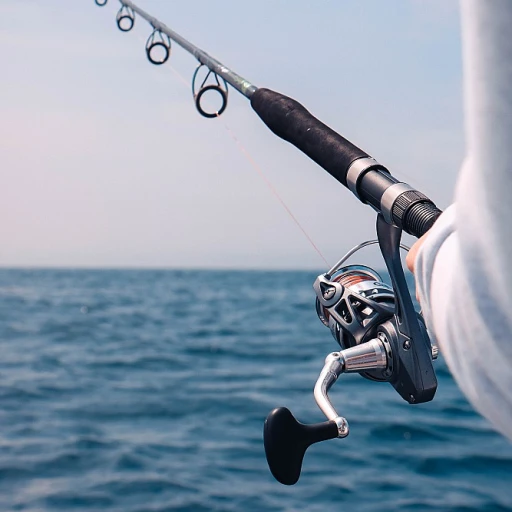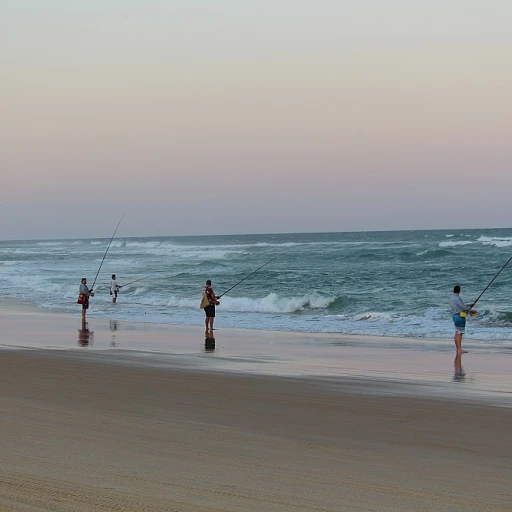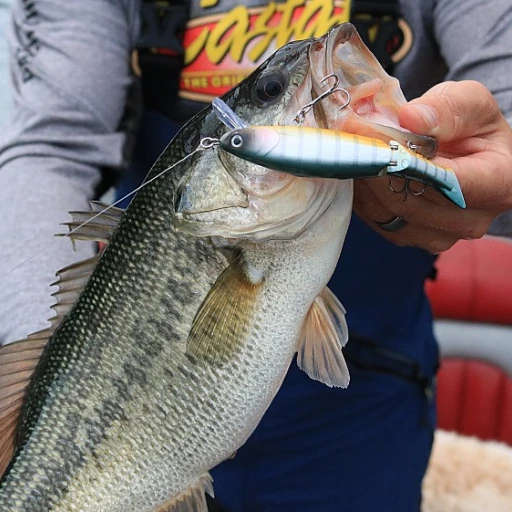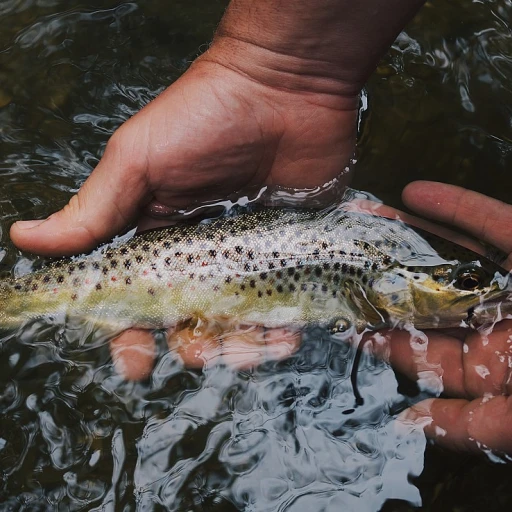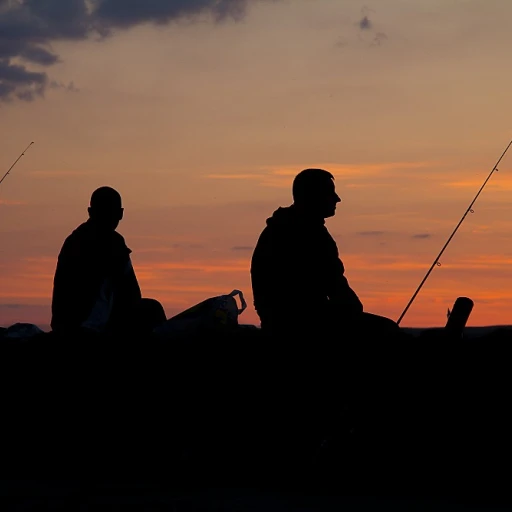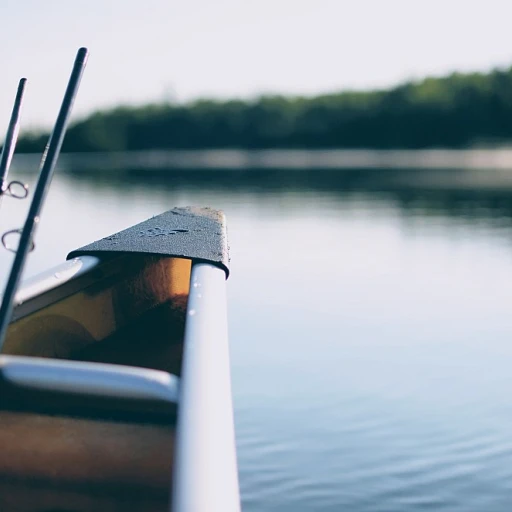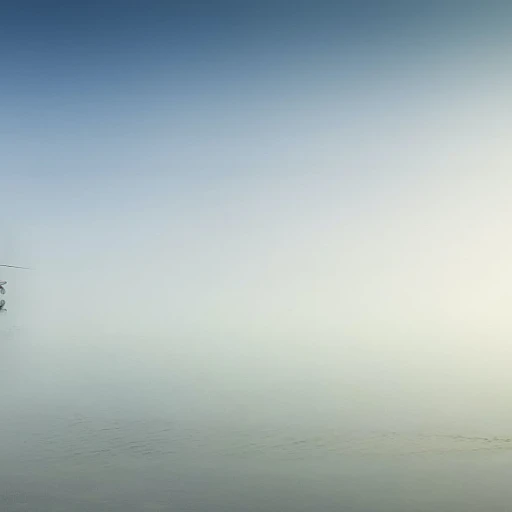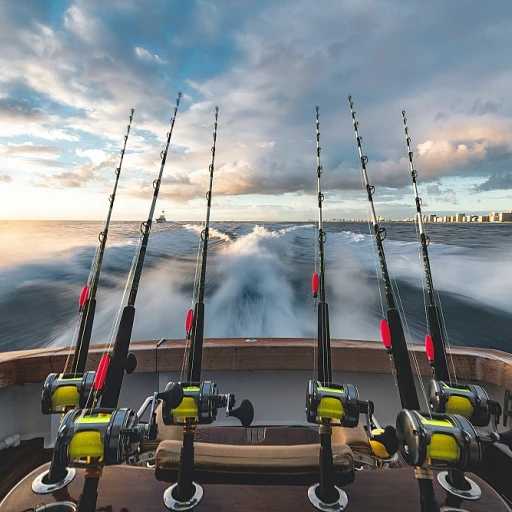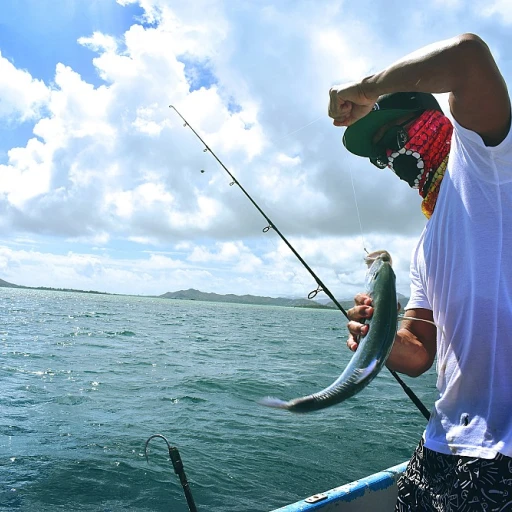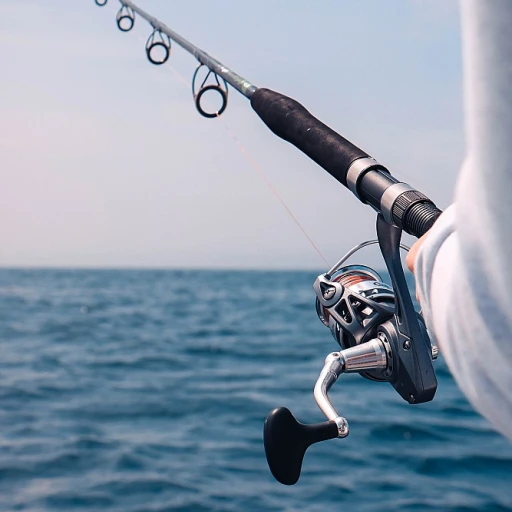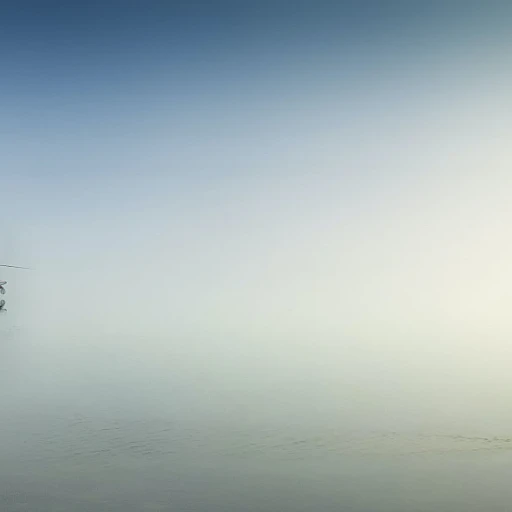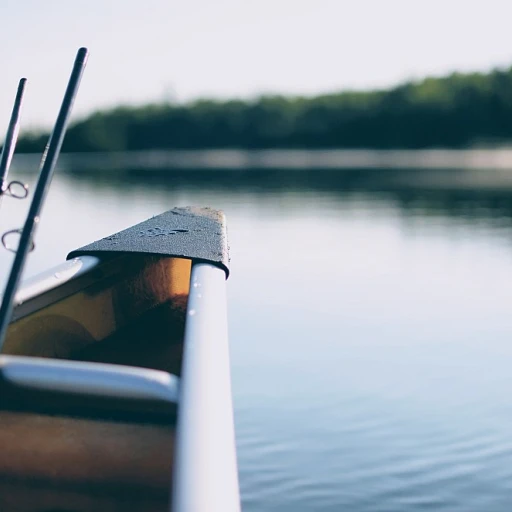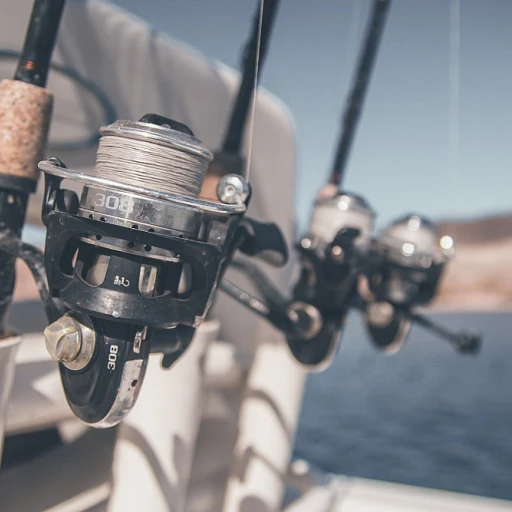
Understanding Freshwater Ecosystems
Navigating Freshwater Habitats
Understanding the intricacies of freshwater ecosystems is fundamental to enhancing your fishing experience. Freshwater environments, such as lakes, rivers, ponds, and reservoirs, support diverse fish species. Each body of water hosts unique conditions that can significantly affect your success rate. Recognizing particular fish species' habitats and behaviors is crucial when embarking on your fishing adventure. For instance, areas with dense vegetation provide cover and food, attracting fish like bass and pike. Whereas deeper waters often harbor species such as trout that prefer cooler, more oxygenated environments. In addition to habitats, water temperature and quality play a vital role in fish activity. Freshwater fish are sensitive to changes in their surroundings, so understanding these aspects will aid you in selecting the proper gear and techniques. There's more to this than just using the right rod and reel; awareness of the ecosystem is a game-changer. For those keen to delve deeper, savor the unique challenges presented by each species and water type. The quest to understand these living waters often leads anglers to explore the unique flavor of species like walleye and others. This exploration invariably refines your angling skills, aligning closely with the principles of conservation and ethical fishing practices, ensuring the sustainability of fishing for generations to come.Choosing the Right Fishing Gear
Getting Equipped for a Successful Fishing Day
Fishing in freshwater offers a diverse experience; thus, selecting the right tools is crucial for success. Let's dive into the essential gear aspects that will enhance your fishing skills and help you maximize your fishing excursions.- Fishing Rod and Reel Selection: A cornerstone in freshwater fishing is your choice of fishing rod and reel. Beginners may find a spinning rod and reel combo especially user-friendly because of their ease of use. For more experienced anglers, a casting reel setup could offer more control and precision when you cast. Keep in mind that different freshwater species may require various rod and reel types, so understanding the fish species you are targeting is vital.
- Tackle Essentials: The tackle box should hold a variety of essentials-- from hooks and weights to swivels and leader lines. Having versatile tackle supplies ensures you're ready for any freshwater situation. Bait worms and worms minnows are popular live bait choices, but artificial lures can also be effective when selected thoughtfully.
- Bait and Lures: Matching your bait and lures to the fish species you're aiming to catch increases your chances of success. For instance, if you're focusing on species such as trout, visit this top freshwater trout varieties for a delicious meal for insights on what could best attract them. Bait and lure selection plays a significant role in enticing freshwater fish to bite.
- Gearing Up for Different Water Bodies: The body of water you fish in will affect your gear decisions. If venturing to an expansive lake, prepare for casting longer distances which might entail a sturdier setup. On the contrary, a small pond or stream might require lighter, more nimble gear.
- Casting Techniques: Mastering various casting styles is crucial to reach optimal fishing spots and effectively present your bait or lure. Different environments call for unique casting methods, whether you're launching over open water or casting under shadows near a bank. Practice makes perfect.
Bait and Lure Selection
Choosing the Perfect Bait and Lure
When it comes to freshwater fishing, selecting the right bait and lure can make all the difference in your success. Whether you're a beginner or a seasoned angler, understanding the preferences of different fish species is crucial. The choice between live bait and artificial lures often depends on the fishing spots and the species you're targeting.
Live bait, such as worms and minnows, is a popular choice for many anglers. These natural options can be particularly effective for catching freshwater species like bass and catfish. The movement and scent of live bait in the water can attract fish from a distance, increasing your chances of a successful catch.
On the other hand, artificial lures offer versatility and convenience. They come in various shapes, sizes, and colors, mimicking the appearance and movement of prey. Spinning lures, for example, are excellent for beginners freshwater fishing, as they are easy to cast and retrieve. When selecting a lure, consider the water conditions and the behavior of the fish species you aim to catch.
Understanding the Role of Tackle and Gear
Your fishing tackle and gear play a significant role in how effectively you can present your bait or lure. A well-matched rod and reel combination is essential for smooth casting and retrieval. Spinning reels are often recommended for beginners due to their ease of use and versatility. They pair well with a medium-action fishing rod, providing a balanced setup for various types of fishing.
For those looking to refine their technique, experimenting with different rod and reel setups can be beneficial. A casting reel, for instance, offers greater control and precision, making it suitable for targeting specific fish species in challenging conditions.
Remember, the key to successful freshwater fishing lies in understanding the ecosystem and adapting your approach accordingly. By mastering the essentials of bait and lure selection, you'll be well on your way to becoming a proficient angler.
Reading Water and Weather Conditions
Observing Nature to Predict Success
Understanding the water and weather conditions is essential for any angler aiming to have a successful day of freshwater fishing. Recognizing the patterns and changes in your environment can directly impact your ability to catch fish. This involves knowing specific nuances in your chosen fishing spots and how different freshwater species react to varying conditions.Here are some key factors to consider when reading the water and weather:
- Water Clarity: The clarity of the water can determine which types of bait or lures you should use. In clear water, natural-looking bait worms, minnows, and lures that match the freshwater species you’re targeting can be crucial.
- Water Temperature: Different fish species favor different water temperatures. Understanding this can help you plan when and where to start casting your line using your spinning reel or casting reel effectively.
- Weather Patterns: Changes in weather, like incoming rain or a drop in temperature, can influence fish behavior and make them more active or subdued. Knowing how to adapt your techniques to these patterns is a valuable fishing tip.
- Wind Conditions: Winds can affect how you cast and where you choose to fish. Utilizing the wind to your advantage by casting along wind-driven shores can increase your chances of a good catch.
Being attuned to your environment will enhance your angling prowess, especially for beginners eager to learn the art of freshwater fishing. Perfecting your skills in reading water and weather conditions is equally as important as mastering the right fishing gear, from your rod and reel selection to the bait and lure choices you make.
Techniques for Catching Freshwater Fish
Effective Techniques to Enhance Your Catch
Fishing in freshwater requires a strategic approach to increase your chances of success. The choice of gear, bait, and technique all come together to influence your ability to land that prized catch. Below is a guide that will help you hone your skills, whether you're a beginner or a seasoned angler.- Choose the Right Technique for the Fish Species: Each freshwater species has its own behavior and feeding habits. Understanding these habits will guide you in selecting the appropriate fishing technique. For instance, spinning is ideal for species that are actively feeding on smaller fish, while fly fishing might be suited for targeting species like trout that thrive in specific water conditions.
- Master the Art of Casting: Effective casting is crucial in placing your bait or lure in the ideal spot. Whether you're using a spinning reel, casting reel, or rod reel, practice your accuracy to avoid spooking the fish. Beginners will benefit from spending time refining their casting techniques in various conditions.
- Use the Correct Gear: The right fishing gear is foundational to successful freshwater fishing. Make sure to pair your fishing rod with the appropriate tackle and bait for your target fish. The correct combination will improve your casting performance and increase your chances of hooking your desired freshwater species.
- Bait and Lure Strategies: Live bait such as worms and minnows can be highly effective. But don't shy away from experimenting with artificial lures to see what works best in your chosen fishing spots. Different seasons or times of day might call for adjustments in your bait and lure tactics.
- Adapting to Water Conditions: Learning to read the water and adapt to changing conditions is key. Be observant of the weather, water clarity, and temperature, as these factors can drastically affect fish behavior and how you should approach your fishing technique.
Conservation and Ethical Fishing Practices
Practicing Responsible Fishing
Responsible fishing goes hand in hand with enjoying the sport and ensuring the sustainability of fish species for future generations. Here are practical guidelines that can enhance your fishing experience while promoting conservation:
- Know the regulations: Familiarize yourself with the regulations of the area you plan to fish in. Different waters have specific rules regarding types of fishing, seasonal restrictions, and size or bag limits for fish species.
- Use barbless hooks: When casting, using barbless hooks can minimize harm to freshwater species that you intend to release. It makes the hook removal process easier and less stressful for the fish.
- Handle fish with care: If you catch a fish you plan to release, be gentle. Wet your hands before handling to avoid damaging its protective mucous layer, which can affect its health.
- Minimize time out of water: Time is essential when dealing with live bait and fish outside their environment. Aim to minimize the period a fish spends out of the body of water to increase its survival chances when released.
- Leave fishing spots better than you found them: Take responsibility for any fishing gear and waste you bring, such as bait worms and discarded lines. Properly dispose of or recycle items to maintain the health and beauty of nature.
- Opt for ethical bait and lure selection: Be mindful of choosing your tools and rod – aiming to cause the least harm – while considering the impact on both the environment and freshwater fish.
These practices not only benefit wildlife but also contribute to a richer, more fulfilling fishing experience. Ethical anglers can make a significant positive impact on preserving freshwater ecosystems for future enjoyment.


